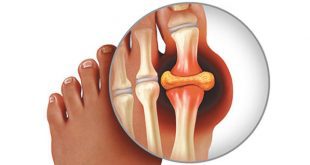By Harry Tsai, M.D. –


Cause
There are many risk factors which can lead to overactive bladder and they include smoking, being overweight, difficult or many childbirths, pelvic surgery (hysterectomy), pelvic radiation for ovarian or cervical cancers, nerve damage (diabetes, Parkinson’s), repeated infections, bladder stones, enlarged prostate (in men), certain medications and weakened pelvic muscles.
Symptoms
The symptoms of OAB include strong, sudden urges to urinate, urinating eight or more times in 24 hours, getting up two or more times a night, not making it to the bathroom in time, and leaking either small or large amounts of urine (urge incontinence)
Detection
Patients can keep a daily log or journal of the number of times they void, the number of leakage episodes and discuss with their urologist. Urologists can elicit OAB diagnosis mainly by history, medications, physical examination and urine tests.
Treatment
1. Behavioral modification: changing fluid, diet to reduce symptoms.
2. Pelvic muscle exercises (Kegels): strengthen the pelvic and sphincter muscles
3. Medications (class is called anticholinergics): they work by blocking and reducing the signals to the nerves of the bladder
4. Nerve stimulation(Urgent PC): peripheral nerve stimulation done in the office, 30 minute office treatments (12 weekly sessions, www.uroplasty.com)
5. Sacral neuromodulation (Interstim): procedure which has two phases but wires are placed directly into the sacral spine which contains the nerves that stimulate the bladder (www.medtronic.com)
6. Pelvic floor stimulation (InTone): at home pelvic floor therapy which takes 12 minutes to perform daily, www.Incontrolmedical.com
7. Botox injections (Botox): the most recent treatment for patients with OAB. Can be repeated and is performed in the office or hospital (www.allergan.com)
Prevention
Patients can watch their fluid intake especially at night. Also, caffeine, alcohol and sodas can increase symptoms of OAB. Lifestyle changes such as losing weight, smoking cessation are also helpful. A healthy diet with increased fiber will prevent constipation which can lead to frequency and urgency. Empty the bladder as often as possible and avoid long periods of holding the urine. Avoid spicy foods, foods high in acidity such as tomatoes, oranges, grapefruits, lemons.
239-985-1900
7335 Gladiolus Drive, Fort Myers, Florida 33908
126 N Del Prado, Suite 103, Cape Coral Florida 33909
 Southwest Florida's Health and Wellness Magazine Health and Wellness Articles
Southwest Florida's Health and Wellness Magazine Health and Wellness Articles

